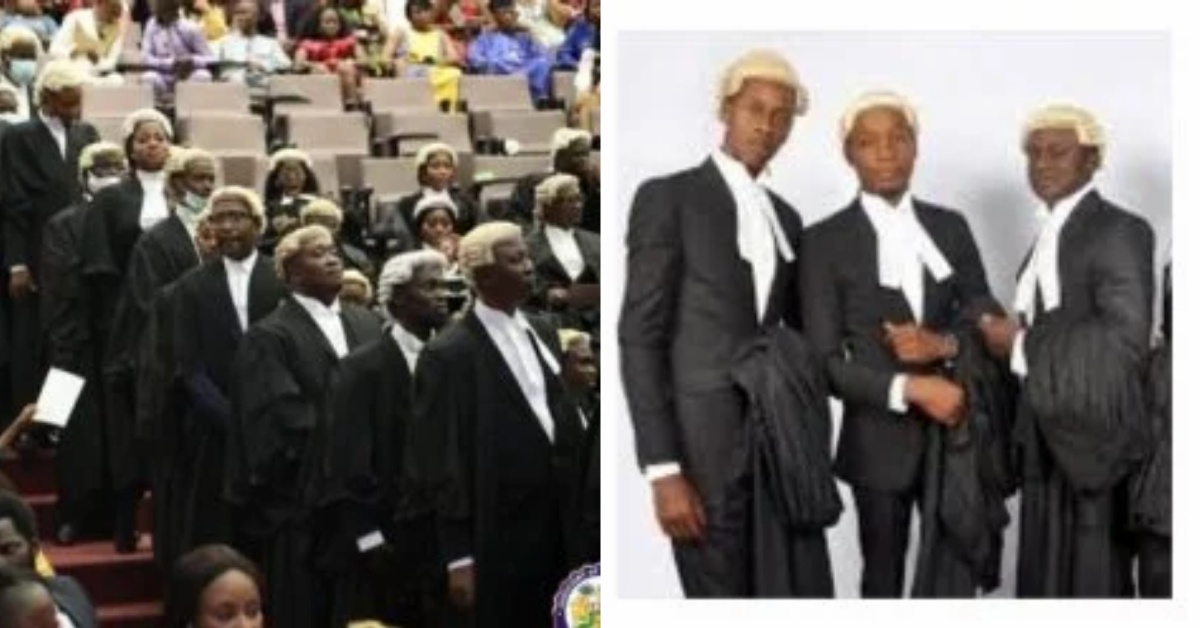The legal profession is one of the oldest and noblest in the world. Not surprisingly, it has continued to evolve since the Byzantine Empire of ancient Rome with the formalization of the profession. Often, these changes need to catch up to the rapidly changing world.
However, one significant change is about to take place in Sierra Leone. Chief Justice Babatunde Edwards recently unfurled a plan to start requiring applicants to the only law school in Sierra Leone to begin taking an entrance exam. Most countries, like the United States, that have an entrance exam to law school have a different legal education structure than Sierra Leone. The law entrance exam in the U.S. (LSAT) tests logical reasoning and other skills that lawyers use to help law schools determine the general aptitude of the applicant to become a successful lawyer. The three required modules in Sierra Leone test for that.
Unlike the U.S., every applicant to law school in Sierra Leone has passed the three modules demonstrating a general aptitude to study law. The law school in Sierra Leone may select among the qualified candidates the best students. The law school already uses a robust interview process that considers not just grades. For example, if the program from FBC is more challenging, it could admit more students from there. or it may accept all candidates with minimum qualifications and let the bar exam screen them out.
Although the LSAT is a reasonably accurate prediction of how a student may perform in law school and the bar exam in the U.S. it does not measure intelligence or hard work or predict success as a lawyer(however, that is not defined.)
In the U.S., for example, several expensive prep courses help students prepare for the entrance exams. A similar direction for interns might eventually occur in Sierra Leone, where students pay to prepare for the entrance exam. Poor students who cannot pay for the exam might be discouraged from taking the exam or studying law.
Another concern is the lack of pupillage supervisory lawyers for the new graduates. The law school can address this problem by becoming more selective and admitting fewer students instead of the expenses of an entrance exam. Also, the legal body in Sierra Leone could dispense with the pupilage system started in England in 1959-which is performed anachronistically.
It assumes that every lawyer would like to practice. Second, in jurisdictions that do not have a pupillage system like the U.S., every new lawyer works under the close supervision of a senior attorney while getting paid as a lawyer. The bar should consider incorporating internships, externships, and law clinics into the law school curriculum. So, a lawyer fresh out of law school might be able to open a shop with a network of support.
The law school focus on training lawyers who inhabit the courtroom and on training future leaders who sit in boardrooms and The corridors of power to shape the country’s future.
In the U.S., where law schools have fewer moved away from the trade school model, there are more lawyers in the U.S. Congress than in any other profession.
The president and vice president are both lawyers. Lawyers make up the second-highest profession among CEOS of Fortune 500 companies.
Requiring pupilage and the structure of legal education will unintentionally shepherd lawyers to law practice only.
Introducing an entrance exam in Sierra Leone might be necessary if the number of admitted students who pass the bar has dropped considerably and consistently. But the reason for the change runs in the opposite direction. It is that too many students are passing the bar. If anything the problem is not the incoming students’ quality but the bar exam’s lack of rigour.
There will be fewer applicants to law school if there is a trend of unemployed lawyers. The market would take care of the demand and supply issues. There are many other creative ways to improve law school and the legal profession in Sierra Leone that will produce quality lawyers not mentioned in this brief article











